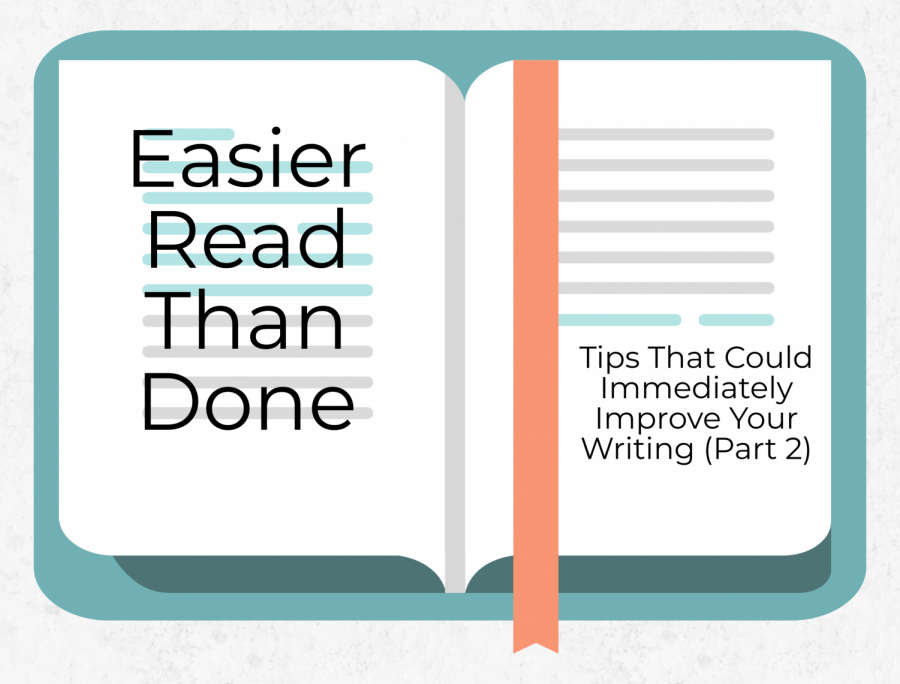logo
Tips That Could Immediately Improve Your Writing (Part 2)
In my last post I gave you some tips and advice that I have either received from others or found out through trial and error, and I have plenty more for you.
1. Make time to write and make it a priority
True or false: you will get what you want done if you never spend time on it. Obviously false, you say (I can feel your eye roll through the screen), but even though we logically know that we need to make time to write, us writers often get in a rut of not writing and either saying, “I’m resting my work”, “I’m waiting for that creative spark”, or “I’m just so busy”. All of those things may be true, but you will never get anywhere if you go months upon months of doing nothing. Breaks are good and you should allot yourself much needed time to rest your brain, but it’s important to write down how many hours, pages, or words you want to write per day and stick to it. That’s the only way to get work done.
2. Don’t show your writing until you are confident with it, and only show it to a very select number of people if any at all.
While it is good to tell others that you are writing in order to keep yourself motivated, you really shouldn’t go around showing your writing for several reasons. One, you don’t want to send your work to anyone you don’t trust to keep it to themselves. The last thing you want is to hear that someone you sent your book to for them to read is now trying to publish it. Secondly and more practically, when you are a beginner writer in the middle of a project, your confidence is easily shaken, no matter how much self-esteem you began with. I made the mistake of showing my brother one of my chapters that I had been proud of, and he bashed it saying, “Wow, it moves so fast. It’s so rushed. I’d redo it.” My brother isn’t a very good writer, but his comment has stuck with me ever since. Every time I finish a scene I think, “Is this rushed?” He might have been right about my writing moving too fast, but it took some time for me to gain any confidence in my writing.
3. Interesting dialogue should accomplish several purposes, not just be mildly entertaining.
Fun dialogue is good, don’t get me wrong, but every line of dialogue should either reveal more about the characters or accomplish movement in the plot. It doesn’t matter how small the contribution is. As long as the dialogue isn’t total fluff, it’s safe to write. Readers don’t want to read pages upon pages of dialogue that is all for nothing.
4. Write down your goals.
These words of wisdom apply to any area of life. I didn’t believe in writing down your goal until I wrote down what I wanted to accomplish with my book. Writing them down makes them feel more achievable and makes you more likely to be driven to accomplish them.
5. Balance, balance, balance.
I learned this tip on my own by looking at other writers’ work. What do all good books have in common? Everything is balanced. From the characters to the pacing to the description to the dynamics between characters, everything is perfectly balanced. It truly is an art, and it is an art that I have yet to master. It’s hard to explain, but you’ll know balance when you see it and it will absolutely impress you. You should also have balance in your process of writing. Don’t get too caught up in punctuation or grammar your first go around, but don’t let it get too messy. Write your best, but don’t dwell on it. See? This might be the most important yet difficult thing to master, but once you do, your writing will skyrocket to the next level.
6. Constantly perceive things around you from the littlest details to the biggest concepts. It will make your writing better.
While you go through your day to day life, make sure to be present and truly experience everything you can and embrace every feeling you feel, even the tortuous ones. While writing, you have to draw upon those feelings that you have felt in the past, and the more experience you have, the deeper and more real your writing will feel. Watch people around you. What are they doing? Why are they doing it? Make up stories about them. Exercise that story-telling brain of yours!
7. Grip it and rip it
I’m a golfer, and we have the common saying “grip it and rip it”. Us golfers work tediously for hours upon hours, hitting hundreds of thousands of golf balls, and each ball we hit less than perfectly we rip ourselves apart for. We think “Why did that fade to the right?” “How can I fix that?” “Should I try snapping my wrists faster?” “Am I lagging my hands enough?” “Maybe I’m not pushing off the ground hard enough.” “Ugh, now it’s hooking.” “WHYYY!?!”. Amidst all these thoughts, doubts emerge very quickly; however, it’s nearly impossible to hit a golf ball correctly when you are thinking anything, especially doubts. The same thing happens with writing. At some point, you have to let go of every critique you have of yourself, let your mind go blank, and just write. As Nike coined, just do it. You’ll never write, let alone write well, if you are too busy thinking about your faults. You grab the golf club, line up to the shot, and just hit it. So after every tip I’ve given you, I’m telling you not to dwell on them too much, just keep them in mind, then WRITE!
Sneak peak: next post will be about why I write and why you should as well.

